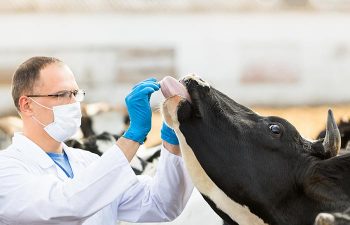With the increasing popularity of outsourcing out-of-hours care to specific emergency centres, today’s new graduates have a very real option to never have to work OOH.
While it is often insinuated it would be a good learning experience to at least do some OOH during your veterinary career, many new grads are opting for the less stressful option of not doing so. But why is that?
Are we simply stereotypical lazy millennials who want to work minimal hours, but still get a decent wage? Or are we simply more aware of mental health and the importance of not working yourself into the ground?
Mixed practice

If you want to work in mixed practice, you have to do some on-call work since OOH centres do not cater for our larger, field-dwelling patients.
In addition, the model of sharing OOH work between large animal practices wouldn’t work due to the large areas each site covers.
So, this leads to another question – are new grads avoiding mixed practice because they don’t want the OOH?
I don’t necessarily think that is the case. Generally, I believe those who go into purely small animal practice do so for many other reasons primarily, with the choice of OOH being somewhere lower down the list.
For those who would happily never see a cow again, it applies to every hour of the day – not just the antisocial ones.
Perhaps the choice to move on from mixed practice into small animal only later in life is more likely to be linked with the option to be rid of OOH. But a deciding factor for your first job? I think there must be more to it than that.
Things that (don’t) make you go OOH
No one likes being on call – sure, you may enjoy calvings or have a knack for caesareans, but who is going to choose the 3am, cloudy-headed rummaging in a pitch-black field with only a crap head torch to guide you over the nice 10am caesarean wrapped up in time to go to the pub for lunch?
I don’t think the problem is with the OOH, but with poorly managed or supported OOH.

As a new grad in your first job, everything is scary. You have no idea where anything is in the practice, what drugs you stock, how to handle clients, or how to do or treat certain conditions – and that’s with other staff on hand to ask questions.
Every practice will vary when it comes to support for new grads and how well it is executed, but it’s even more of a gamble as to whether new grads will receive the right kind of OOH support.
And you cannot always foresee that – the harsh truth is some employers will lie outright to entice you. You may be promised the world, but that’s no good at midnight when you have a gastric dilatation-volvulus (GDV) case, but have never even seen the surgery before and no one is answering their phone.
The sort of things you see OOH tend to only occur OOH too, so a very strong possibility exists that you will be on your own with an upset client, not having a clue how to do the task in question (whether that be, for example, a GDV, caesarean or calving).
Many of the older generations will say it’s tough love and that’s how you learn quickly. But it’s attitudes like that – the general expectation to just get on with it, and the fear of asking for help – that do not help the poor state of mental health in our profession, and it is precisely this lack of support or backup that puts new grads off doing OOH.
Rota problems
The other factor that will make or break a job involving OOH work is the rota.
For those of us who are not superhuman, a one in two OOH rota is just not tolerable. Since many aspects of a rota can be tweaked to make OOH work better for everyone, I find it baffling some practices can still get vets to work ridiculous rotas.
Options to take some of the pain out of OOH include:
- a reasonable rota shared fairly

Adjusting a staff rota can help make out-of-hours work better for everyone. Image © Silkstock / Adobe Stock. - fair time off in lieu (TOIL) or overtime pay
- TOIL immediately after being on call – for example, half a day on the Monday after a weekend
- minimising consecutive nights on call (ideally none, except weekends)
- outsourcing what you can – for example, if a mixed practice, send the small animals to a dedicated OOH provider and just do your own large animal emergencies
- outsourced telephone handling – this could be an independent phone answering service, pager system, nurse triaging, more experienced vets taking the telephone calls and just sending the new grad out for genuine call-outs, or your small animal OOH provider taking all telephone calls and telephoning the large animal on call vet for any visit requests
Support essential
As a new grad wanting to go into a mixed role initially, I accepted the fact I would have to do some OOH. However, this didn’t mean I gave it no more consideration than that.
I was offered all manor of rotas, styles of telephone call handling and expectations, but my primary concern was having a dedicated backup I could rely on to answer the phone when I needed help. While this sounds so simple, you would not believe how hard it can be to find.
That is the problem new grads have with OOH – and until we can be guaranteed suitable OOH support, new grads will continue to seemingly avoid OOH.

Leave a Reply